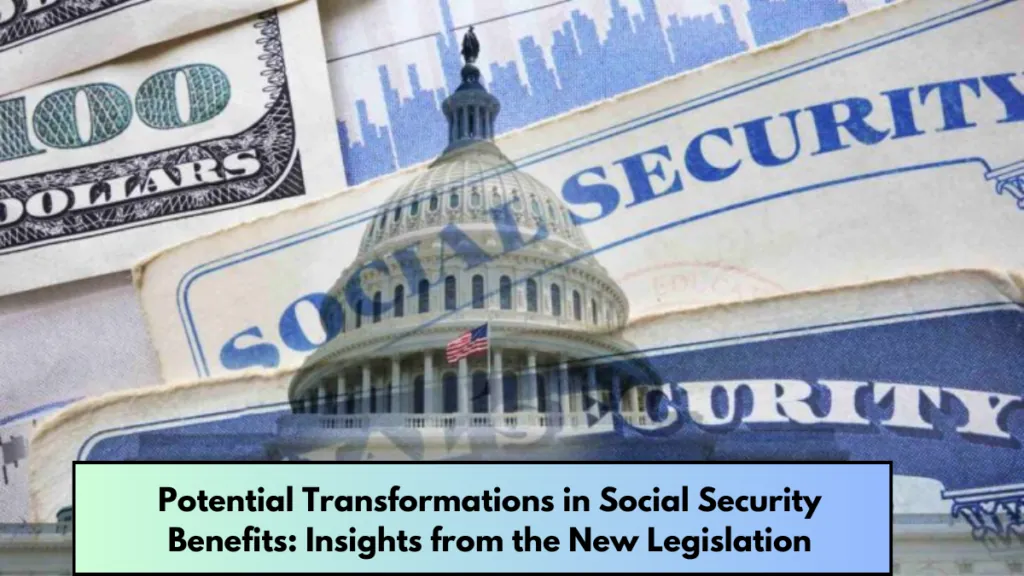In a significant move that could reshape the landscape of Social Security benefits, Congress is actively discussing the Social Security Fairness Act. This proposed legislation aims to amend current Social Security provisions, particularly those affecting public service workers. Here’s a closer look at the key elements of this potential change and its implications.
Understanding the Social Security Fairness Act
This Article Includes
The Social Security Fairness Act seeks to address longstanding concerns regarding the Windfall Elimination Provision (WEP) and the Government Pension Offset (GPO). These provisions primarily impact individuals who have careers spanning both Social Security-covered jobs and roles in state or local government that do not contribute to Social Security. The bill has garnered bipartisan support, highlighting its potential to rectify perceived inequities faced by public service employees such as teachers, police officers, and firefighters.
What are the WEP and GPO?
The WEP was designed to prevent individuals from receiving inflated Social Security benefits alongside government pensions. Similarly, the GPO reduces spousal benefits for those receiving pensions from government jobs. Critics argue that these measures often lead to unintended consequences, particularly disadvantaging public servants who contribute to both systems.
The Case for Change
Proponents of the Social Security Fairness Act emphasize that millions of retired public servants have waited for decades for a resolution to these fairness issues. Representatives Garret Graves and Abigail Spanberger have expressed that these workers deserve the benefits they earned through their service.
Rich Johnson, director of the Urban Institute’s retirement policy program, highlights a crucial point: many individuals with non-covered employment appear to have lower lifetime earnings, leading to higher Social Security benefits than what would be justified had they only worked in covered jobs. This anomaly raises questions about the overall fairness of the current system.
Concerns About Repealing WEP and GPO
While there is broad agreement that the WEP and GPO need reform, some experts caution against their complete repeal. Andrew Biggs from the American Enterprise Institute argues that instead of eliminating these provisions outright, it would be more prudent to update the formulas used to calculate benefits, using more accurate data to address the disparities.
A 2020 report from the Urban Institute indicated that if WEP and GPO were repealed, approximately 4.5% of beneficiaries would see an increase in their benefits, averaging around $7,300 annually. However, this increase could come at a significant fiscal cost.
The Financial Implications
The Congressional Budget Office has estimated that the Social Security Fairness Act could cost over $190 billion over the next decade. Critics, including Marc Goldwein from the Committee for a Responsible Federal Budget, have labeled the proposal fiscally irresponsible. Goldwein argues that the bill could jeopardize the long-term solvency of Social Security, framing it as a step in the wrong direction.
Legislative Progress and Future Prospects
Despite the criticisms, there is momentum behind the Social Security Fairness Act. The House GOP leadership plans to bring the bill to a vote in November, following a successful discharge petition that garnered the support of 218 lawmakers. This bipartisan backing reflects a strong desire for reform among many members of Congress.
However, as the legislative session approaches its conclusion in January, uncertainties remain about the bill’s fate. With various pressing issues on the agenda, the potential for the Social Security Fairness Act to pass through both chambers of Congress is still in question.
Conclusion
The discussions surrounding the Social Security Fairness Act highlight a pivotal moment in U.S. social policy. As Congress weighs the implications of potential changes to Social Security, the outcomes could significantly impact millions of retirees and public service workers. The interplay between fiscal responsibility and fairness in benefit distribution will continue to shape the debate in the months to come.
